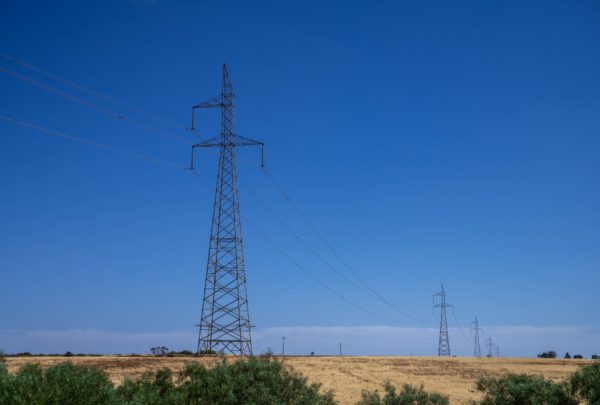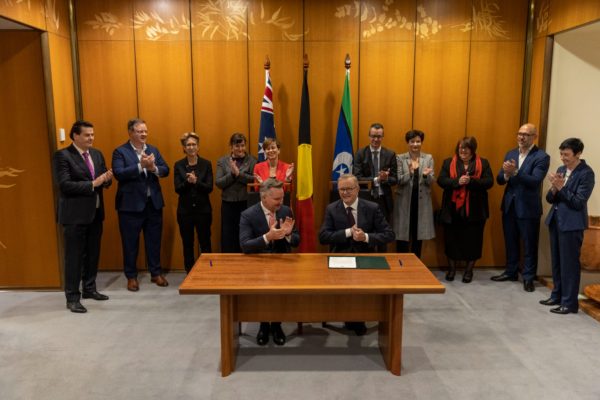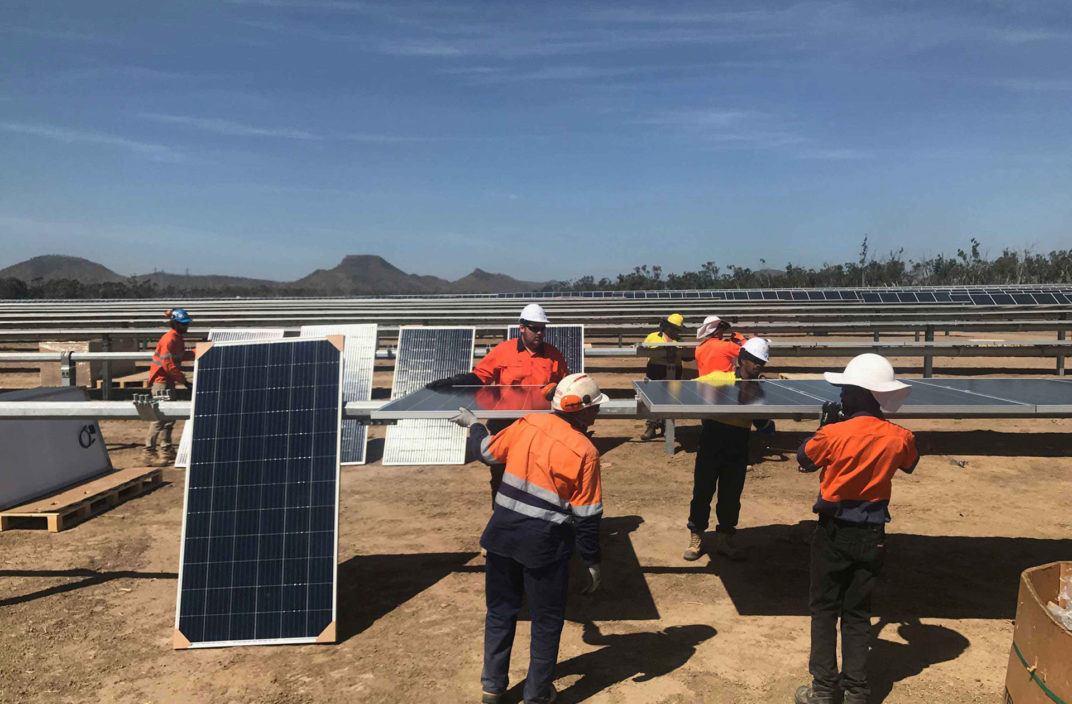Newly installed Energy Minister Chris Bowen has warned there are no easy fixes to the energy crisis that is gripping Australia’s east coast but dismissed suggestions it would slow the nation’s transition to a renewables dominated energy future.
“In fact, the transition is even more important now,” Bowen said on Thursday. “Navigating out of the current energy crisis and ensuring we don’t find ourselves here again in a decade means we have to shift the focus to planning a smooth transition.”
His comments come after the Australian Energy Market Operator (AEMO) on Wednesday suspended the electricity wholesale spot market in the entire National Electricity Market (NEM) until further notice. It is the first full suspension of the market since its inception in 1998.
The intervention, prompted by soaring power prices and energy supply challenges means AEMO is now in charge of directing supplies from energy providers to the grid. The operator will also set energy prices for every jurisdiction in the market.
AEMO said it had taken the historic step “because it has become impossible to continue operating the spot market while ensuring a secure and reliable supply of electricity for consumers”.
While some commentators have suggested the only solution to the current crisis is to keep coal-fired generators going, Bowen rejected the claims, saying the situation had been caused in no small part by an under-investment in renewables and storage.
“The problem is there is not enough investment in renewable energy. There hasn’t been enough investment in storage,” he said.
“Yes, you can say the wind doesn’t always blow and the sun doesn’t always shine. The rain doesn’t always fall either, but we can store the water and we can store renewable energy if we have the investment. That investment has been lacking for the last decade. That is the problem.”
The situation remained critical on Thursday with AEMO issuing a level three lack of reserve notice for New South Wales (NSW). The operator also warned Queensland and Victoria should expect shortfalls in the system later today but pressure on the grid is expected to ease from Friday and through the weekend as more power units come back online.

Image: Transgrid
AEMO said the suspension of the market is temporary and will be reviewed daily with Bowen saying it will be lifted when the operator is confident the market will operate properly.
“It will continue for not a day more or less than is necessary,” he said.
“I’ve been very clear with the chief executive of the operator. He has my full support for any action he deems necessary. The government will back the operator and the regulators 100%.
Prime Minister Anthony Albanese said the energy crisis could prompt a reworking of the NEM rules, including the incentives for generators to pump electricity into the system.
“There are weaknesses, clearly, that have been exposed, and all of the lessons of what is happening will be examined,” he said. “If there need to be any policy adjustments, then they’ll be made.”
Meanwhile, Albanese has formally committed to the United Nations (UN) that Australia will cut its greenhouse gas emissions by 43% by 2030, up from the 26% to 28% target set by the previous government.
Albanese said on Thursday he had written to UN Framework Convention on Climate Change executive secretary Patricia Espinosa Cantellano to inform her of Australia’s new 2030 target.

Image: Supplied
Albanese said legislation to enshrine the new target in law would be introduced to the new Parliament, which will sit for the first time on July 26.
Clean Energy Council (CEC) chief executive Kane Thornton welcomed the new emissions reduction target, saying it gives the green light to renewable energy investors.
Thornton said the CEC’s latest Clean Energy Outlook – Confidence Index revealed that 79% of investors had indicated an improved 2030 emissions reduction target would increase their confidence for future investment.
“Today’s formal agreement provides clarity and a positive investment signal to accelerate the decarbonisation of Australia and take advantage of the enormous economic opportunity in play,” he said.
“The current crisis in the National Energy Market has clearly illustrated the perils of dragging our feet on energy policy.
“Our aging coal-fired power fleet and transmission network is not fit for purpose and are now failing Australian businesses and households.
“A 21st-century economy needs a modern electricity network that supports reliability, security and lower emissions technologies, and delivers low-cost energy to consumers. Today gets us closer to that goal.”
This content is protected by copyright and may not be reused. If you want to cooperate with us and would like to reuse some of our content, please contact: editors@pv-magazine.com.









By submitting this form you agree to pv magazine using your data for the purposes of publishing your comment.
Your personal data will only be disclosed or otherwise transmitted to third parties for the purposes of spam filtering or if this is necessary for technical maintenance of the website. Any other transfer to third parties will not take place unless this is justified on the basis of applicable data protection regulations or if pv magazine is legally obliged to do so.
You may revoke this consent at any time with effect for the future, in which case your personal data will be deleted immediately. Otherwise, your data will be deleted if pv magazine has processed your request or the purpose of data storage is fulfilled.
Further information on data privacy can be found in our Data Protection Policy.